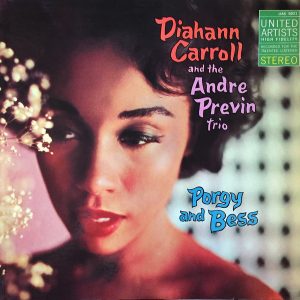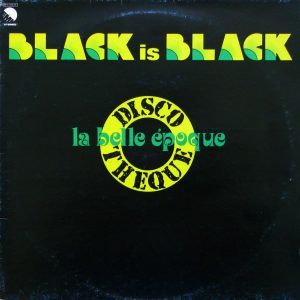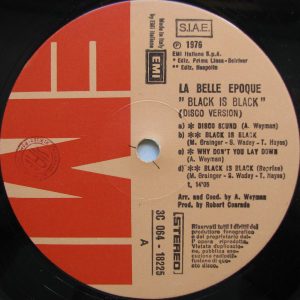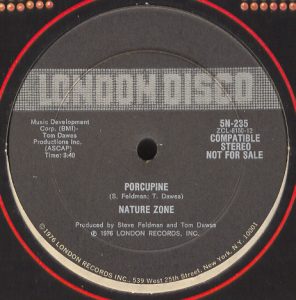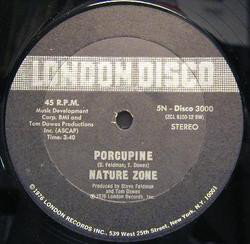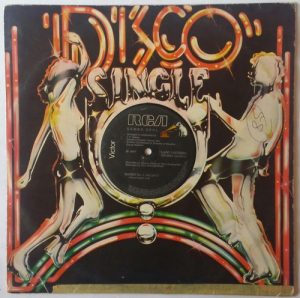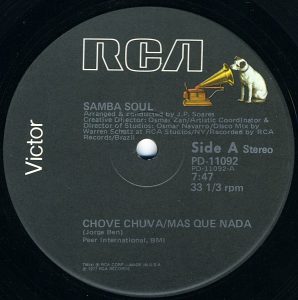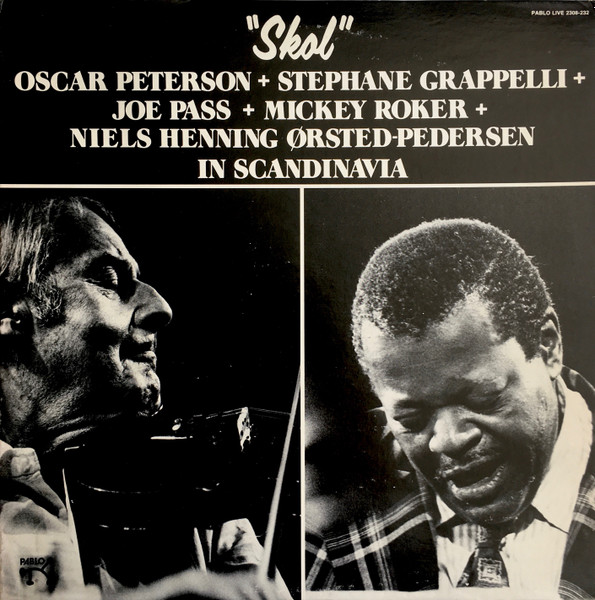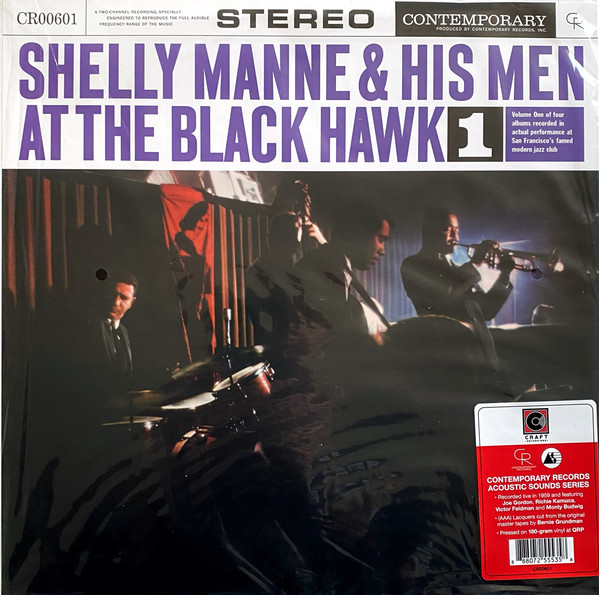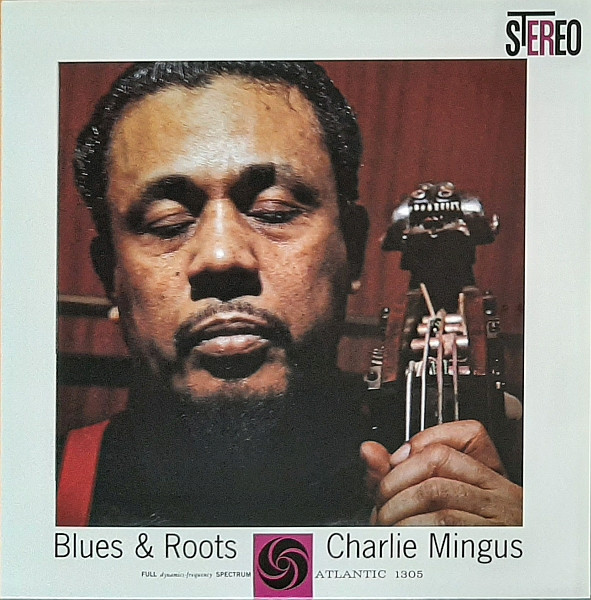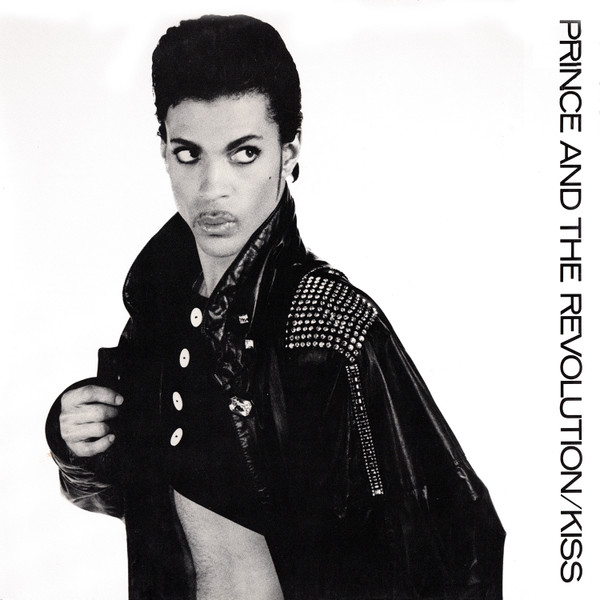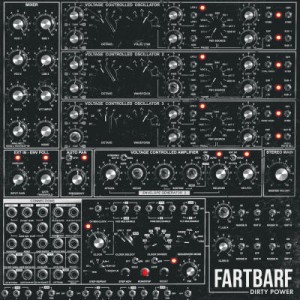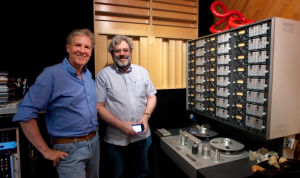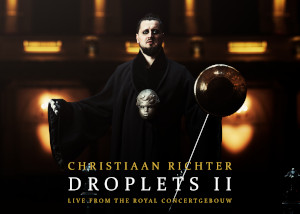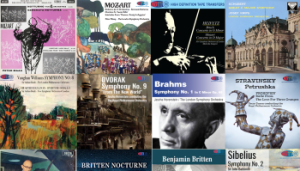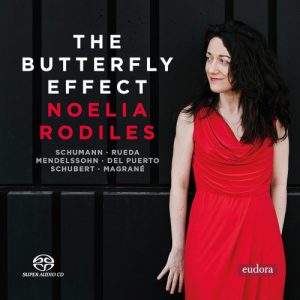This is an ongoing project by Claude Lemaire of Soundevaluations
161. Diahann Carroll and The André Previn Trio, Porgy and Bess. United Artists Records UAS 5021, United Artists Records UAS 4021 (mono) (Can.) (1959), 33 1/3 rpm. Genre: jazz, musical.
I loves you Porgy... let me count the ways. There are several interpretations of Gershwin's work—originally considered by the composer as a "folk opera" in 1935, while later adapted as a musical for Broadway, and finally for film in 1959. Of course "Summertime" is the best known song of the work, being covered by so many great artists such as Billie Holiday, Miles Davis, and Janis Joplin just to name a few. On this particular LP released the same year as the film, singer, actress, and model Diahann Carroll joins German-American pianist, composer, and conductor André Previn with bassists Joe Mondragon and Keith Mitchell, and drummers Larry Bunker and Frank Capp forming his trio. The latter keep a low profile, preferring to let her shine through the ten tracks. I don't have the original US pressing so I cannot comment on that release, but I do have two Canadian first pressings, both mono and stereo. The mono version is very pleasant sounding with incredibly delicate and refined treble. This lends the vocals an uncanny intimate presence as does a harpsichord-like instrument—or piano perhaps—on one track tingling the top end. The dynamic expressiveness is fantastic. The bass is just a tad shy in a near-perfect tonal balance. As can be expected the stereo version is quite wider with Previn's piano panned to the left side, and Diahann steered towards the right, making that type of soundstage situation somewhat unorthodox vs the common convention of centering the singer while the accompanying band spread out to the sides. The bass and lower notes of the piano are more plump and present with the stereo. Though each presentation is interesting, in the end I preferred the mono for the intimacy and imaging, with the singer directly in the middle instead of to my right. Produced by Jack Lewis, there are no engineering and studio credits listed unfortunately.
162. Ray Charles & Cleo Laine, Porgy & Bess. RCA CPL 2-1831 (1976), Classic Records JP1831 (1998), 2x33 1/3 rpm. Genre: jazz, musical.
Another very different and interesting interpretation of Porgy was the 1976 orchestral jazz adaptation, arranged and conducted by Frank De Vol. The double album encompasses the most memorable songs from Gershwin's original score, but refreshed with rich orchestrations offering new textures to discover. Cleo and Ray are superbly paired, their voices complementing each other so well, displaying passionate intensity and interplay throughout the tracks. He also lends himself to the ivories on some songs. They are accompanied by Joe Sample on organ, Harry Edison on trumpet, while Joe Pass and Lee Ritenour share guitar licks. Drums, bass, vibraphone, strings, and brass build up a very dynamic presentation. The remaining swinging musicians manning the band are not credited. Prolific producer Norman Granz granted name recognition to the project. Engineer Grover Helsley recorded them at RCA Studios in Hollywood on all analog large format multitrack giving it that mid-1970s sound vibe. I don't have the original RCA pressing but rather Classic Records' reissue, remastered by Bernie Grundman first in 1998 on 180g—though not the 200g released in 2005. This is one of the truly terrific remasterings by Bernie. Be it tonal balance, brass bite, treble texture and extension, cymbal definition, agile close-mic'd drum toms, transparency, vocal realism, and finally warm intimacy without falling into any overfat sludge sound.
163. Belle Epoque, Miss Broadway (France), Black Is Black (Italy). Carrere 67. 169 (France) (1977), EMI 3C 064-18225 (Italy) (1976), 33 1/3 rpm. Genre: disco, Euro-disco, electro and funky flirtings.
File it under nostalgia perhaps but winter 1976-77 seemed like La Belle Époque, at least to me for getting my first sound system as well as Montreal's nightlife entering disco's most intense and interesting period. Formed in Paris, France, the female trio had two minor hits with "Miss Broadway" along with their discofied version of Los Bravos' "Black Is Black" hit single (Columbia CP 9.003), originally from 1966. Coincidentally French compatriot Cerrone also covered the latter on his debut album (Alligator J 1611), released just about the same time. Strangely the Italian EMI first pressing differs from the original French and North American releases in cover art, album title, and side order, i.e. A/B are reversed. Arranged and conducted by Albert Weyman, and produced by Roberto Conrado, the sound of my Italian pressing is fantastic with generous hefty lows, sufficient sweet highs, and perfect warm tonal balance, especially so on "Miss Broadway," which combines the main funky synth bass line riff, a traditional-like fiddle melody, and some quirky, scratchy vocals. The "Black Is Black" track is incorporated into a 14 minute medley occupying a whole side joined by the tracks "Disco Sound" and "Why Don't You Lay." This side is a bit less sweet in the treble but it slams pretty hard in the unrelenting momentous drive with its faster tempo, panned percussion, and processed-vocals. It is evident by the song structure and sonorities that they drew heavy inspiration from Donna Summer's "Try Me, I Know We Can Make It" (Durium D. AI. 30248) released earlier in March. I didn't have the original French Carrere pressing to compare with, but can confirm that the Canadian copy—and even its twelve-inch single counterpart (Carrere CA-001)—is not as impressive as this Italian pressing. This is a killer pressing!
164. Nature Zone, "Porcupine"/"Nobody Can Love Me (Like You Do)". London Disco 5N - Disco 3000 (1976), 45 rpm. Genre: disco.
There is very little information on this group. I had never heard this twelve-inch single scheduled for release around June 1976 on the radio nor in clubs, and just newly discovered them finding a reasonably priced mint copy from a nearby record store. Composed, arranged, and produced by Steve Feldman, Tom Dawes, and John Lissauer. Both songs are kept close to the four minute mark ensuring plenty of groove space even at 45 rpm for superb sound quality. The music is nothing to go wild over, being mostly melodic-driven disco featuring a rhythm section, strings, strong piano participation, and very minimal vocals on side A, while side B is faster-paced, and has male and female vocals sharing duties. The sonic aspects are close to "one-step territory" or "direct-to-disc" in sonic immediacy especially so on side A where a rhythm guitar on the right is so clearly defined. The bass, mid, and treble reproduction are stunningly clean and powerful. The dynamics and 3D soundstage in all directions are close to mind-boggling. Mastered by Sterling Sound in New York, and pressed by Bestway Products Inc. in Mountainside New Jersey. Even if it's not a dancefloor stomper, definitely demo-worthy sonic-wise!
165. Samba Soul, "Chove Chuva/Mas Que Nada"/"Mambo No.5". RCA Victor PD-11092 (1977), 33 1/3 rpm. Genre: latin disco, samba soul, mambo, minor afrobeat influences.
With the exception of a few hit singles in the late-1950s such as "La Bamba" and "Tequila", Latin elements infusing popular music mainly manifested itself a full decade later in rock, soul, and funk formations such as Santana, War, and Barrabás. Spanish Harlem musician and singer Joe Bataan—who first came out with the term "salsoul," and soon rebranded it for disco's most important independent label—also had a string of hits blending boogaloo, salsa, and soul. Unlike Salsoul Records, where sound quality was consistently high across the board—employing mostly the same high caliber personnel every time—the giant RCA conglomerate understandably did not produce such a uniform sound. As such, there are some awesome, as well as awful sounding records in their vast catalogue covering the whole gamut between both extremes. Samba Soul from Brazil fall into the former fortunately. Coordinated and directed by Osmar Navarro, and created by director Osmar Zan. Arranged and conducted by French trumpeter Jean-Pierre Soarez Here they reprise and fuse together two classic Latin hits originally sung by Brazilian singer musician Jorge Ben, and found on his 1963 debut album Samba Esquema Novo (Philips P 632.161 L)—"Chove Chuva" and "Mas Que Nada", the latter a huge hit for Sérgio Mendes in 1966 (A&M Records SP-4116). Side B reprises the Cuban classic "Mambo No.5" originally by Pérez Prado in 1950. Recorded at RCA Studios in Brazil and mixed by Warren Schatz at RCA Studios in New York in 1977, the tonal balance is spot on, with firm clean bouncy bass, panned clear guitars, string sweeps and/or string-sounding synth, and crisp brass alternating between trombone, trumpet, and sax. The multiple percussive chunky breaks of drums and conga encourage many mix possibilities with other disco tracks such as Larry Page Ork's "Erotic Soul" from 1976 (Penny Farthing PD 100).
For more from Claude Lemaire go to his blog...
http://soundevaluations.blogspot.ca/




